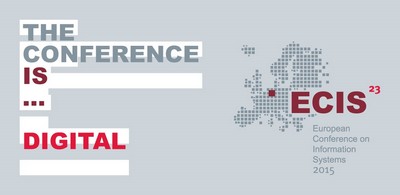DOI
10.18151/7217281
Abstract
Municipalities consume over 67% of global energy and are responsible for over 70% of greenhouse gas emissions (GHG). The Intergovernmental Panel on Climate Change warns that rapid adjustments need to happen at a global level, or the effects of climate change will be irreversible. The contribution of municipalities is therefore vital if GHG emissions are to be reduced. Our research is timely in its exploration of the ways in which municipalities institutionalise environmental sustainability practices in and through Green digital artefacts. Using mechanism-based institutional theory as a lens, the paper presents the findings of three contrasting case studies of large municipalities in the United Kingdom in their respective programmes to leverage the direct, enabling and systemic effects of Green ICT in order to reduce GHG emission and achieve their eco-sustainability goals. The case sites are also regarded as exemplars for further research and practice on digital eco-innovation. The mechanism-based explanations illustrate how a social web of conditions and factors influence eco-sustainability outcomes. We conclude that the digital technology-enabled grassroots-based initiatives offer the best hope to begin the transition to sustainable climate change within municipalities. The contributions of our study are therefore both theoretical and practical.
Recommended Citation
Butler, Tom and Hackney, Ray, "Understanding Digital Eco-innovation in Municipalities: An Institutional Perspective" (2015). ECIS 2015 Completed Research Papers. Paper 21.
ISBN 978-3-00-050284-2
https://aisel.aisnet.org/ecis2015_cr/21


